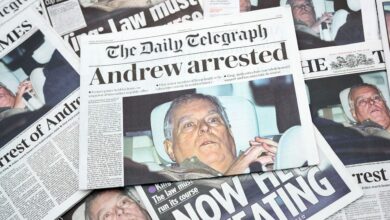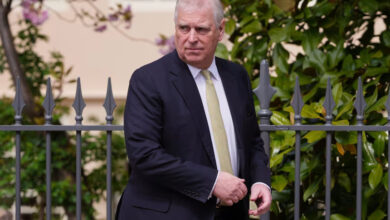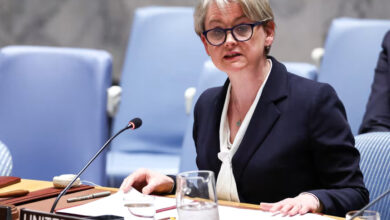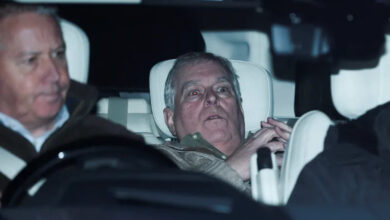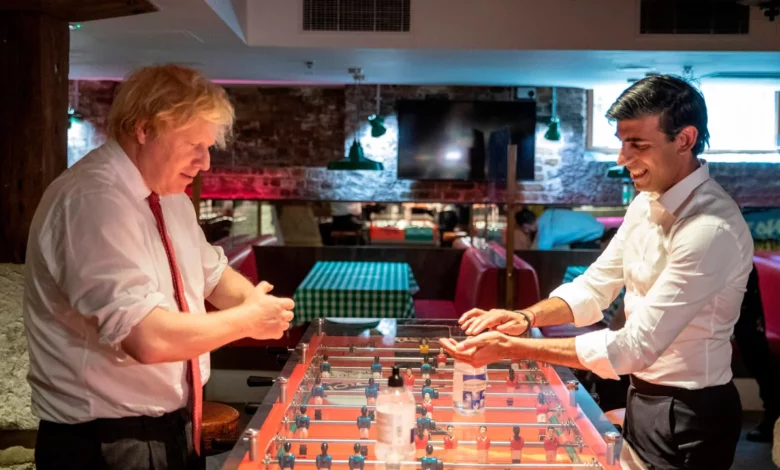
The inquiry, which began taking evidence on Tuesday, had for weeks been overshadowed by a series of spats between Sunak, the current prime minister, and Johnson, who resigned in disgrace last summer.
The first such spat relates directly to the inquiry. Sunak and his government is legally challenging the inquiry’s right to request personal information from people who were directly involved in decision-making during the pandemic. That means anything form private WhatsApp messages to private diaries.
The government says it wants to block this because it could set a precedent where information that isn’t relevant could enter the public domain which could have an adverse affect on the way that people making decisions communicate during a crisis.
Johnson undercut Sunak by directly handing his own information to the inquiry.
Deborah Doyle, spokesperson for Covid-19 Bereaved Families for Justice, said of the government’s legal action: “For the Cabinet Office to spend hundreds of thousands of pounds of taxpayers’ money on suing its own public inquiry into being unable to access critical evidence is absolutely obscene … They’re displaying exactly the same contempt for ordinary people that was so disastrous when the pandemic struck in the first place.”
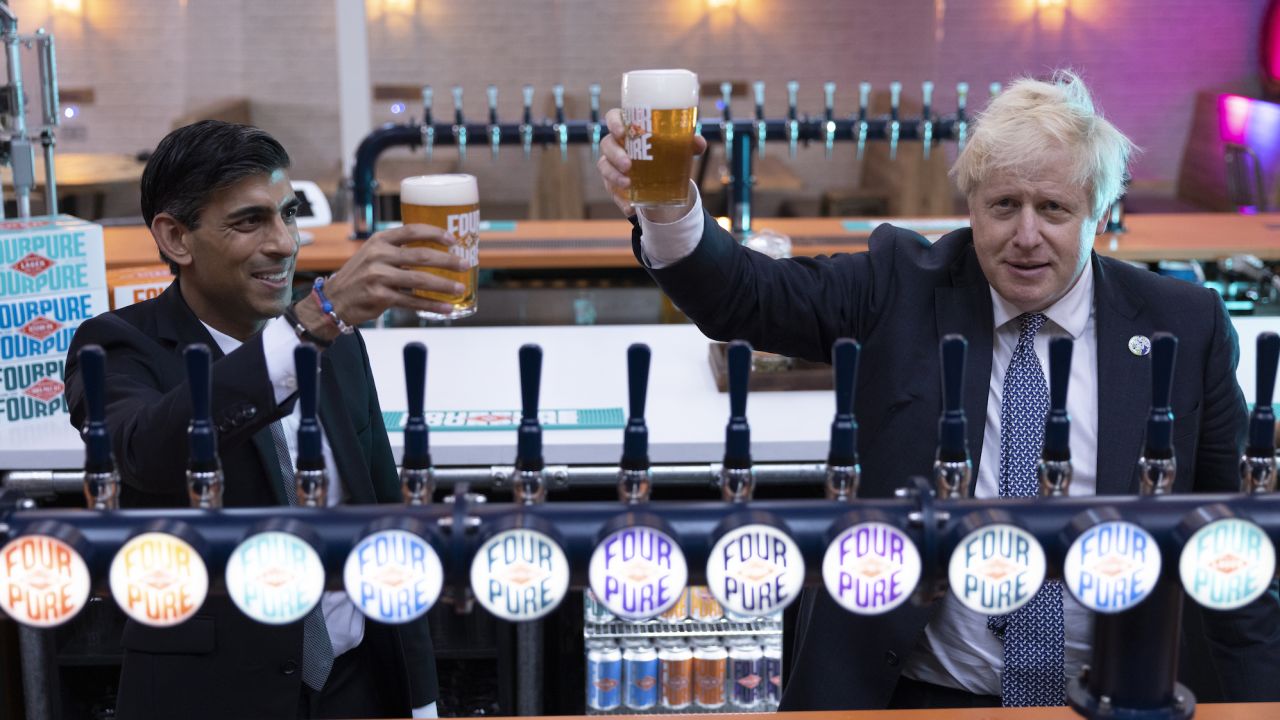
The second, and probably more explosive, of the spats distracting from the inquiry revolves around a parliamentary committee specifically looking at whether or not Johnson knowingly misled lawmakers when he said that during the pandemic, all of the rules in place were observed at all times.
This is the committee’s investigation into the infamous Partygate scandal, which led to Johnson being fined by police for breaking Covid rules. Sunak was also fined for the same incident.
Johnson had initially told parliament that all rules were followed at all times. Even after it become transparent that this wasn’t true, Johnson maintained that he did not knowingly mislead parliament. The committee disagreed, this week recommending that Johnson should be suspended from parliament for 90 days and not be allowed a pass back into the building, something ex-members are entitled to.
Having seen the report ahead of its publication, Johnson resigned as a member of parliament and continued to accuse the committee of being politically motivated. He still protests his innocence and has called the committee “beneath contempt”.
While Johnson has ostensibly resigned over the committee’s report, it was expected that Johnson might resign after Sunak rejected certain people that Johnson wanted to elevate to the UK’s upper parliamentary chamber, the House of Lords. It is believed by Sunak’s allies that Johnson simply wanted to cause the PM a headache. Johnson’s office denies this.
‘Shocking’
All of this drama, of course, brings no comfort to those who lost loved ones to Covid 19.
“The families of the bereaved want the government to learn lessons that might save lives in the future. All of these attempts to save face are frankly just shocking,” Jack Rodgers, also from the Covid-19 Bereaved Families for Justice campaign, told CNN.
Johnson and Sunak would both deny that they are trying to save face. But the inquiry does have the potential to cause them both enormous damage in the eyes of the public.
Christina Pagel from University College London’s Clinical Operational Research Unit thinks that the the inquiry could shine an unflattering spotlight on what happened after the first wave of Covid-19 hit the UK.
“From summer 2020 onwards, we knew a lot about how the disease spread, but the government consistently failed to use the summer or the time during lockdowns to put better protective measures in place, such as indoor cleaner air or improved support for isolation.”
At the time the UK had rules that changed based on infection rates in local areas. In cases that meant people could meet indoor in groups of six. It was around this time that Sunak introduced his “Eat Out to Help Out” scheme, where meals out would be subsidized in an attempt to boost the hospitality industry.
Leading scientists have claimed that the scheme was not backed by experts and it is expected to be a key focus of the inquiry – whether or not encouraging such mixing led to the virus spreading further.
Pagel also points specifically to the way in which procurement contracts were handed to people who have since been found to have links to the Conservative party. The government implemented a fast-track scheme in order to secure personal protective equipment, which have since come under scrutiny and led to accusations of cronyism.
“It’s one thing acting fast in a crisis; it’s another giving your friends loads of money despite them not knowing what they are doing. There were plenty of other eminently qualified people offering to provide PPE,” she says.
The government argues that at the time it was simply trying to avoid running out of PPE and did everything possible to secure it.
Report could reveal chaos
CNN spoke to multiple people who worked in government during the pandemic about their concerns for the inquiry. Most are worried about what unvarnished records of conversations – cabinet ministers arguing and big personalities blowing up – will look like to the public. Others are worried that the true level of chaos inside Downing Street, particularly at the start of the pandemic, will cause embarrassment for everyone involved rather than just those in charge.
One senior government official at the time described how teams deliberately tried to keep their work away from Johnson who was, they say, often erratic and would get in the way of what they were doing. This included setting up work space in different buildings.
Ultimately, it is inevitable that this inquiry will put the people who led the country at the time under fresh scrutiny. And it’s possible much of what comes out will be embarrassing. Which, of course, somewhat minimizes the human tragedies at the center of this story.

Lorelei King lost her husband early in the pandemic. She is watching the inquiry unfold with some concern.
“They are refusing to call any of the bereaved to give direct testimony. We have submitted 20 potential witnesses. This is not about talking about our experience, this is about presenting relevant evidence,” she told CNN.
“On day one, the inquiry played a film about the impact of the virus on the bereaved. Baroness Hallett, who is leading the inquiry, said she had learned something new from the film. So there it is, that (fresh evidence) came from individual direct testimony.”
King told CNN that she and the care home her husband, who had Alzheimer’s, was living in agreed to end in-person visits before the government locked down.
One day, she noticed on a video call that her husband’s breathing was unusual. “Days later he was dead. I got to see his body briefly, then men in hazmat suits came and took him away.”
For King, the political drama that has dominated the conversation around Covid in the UK recently has made the grieving process even harder.
“The scab is ripped off every time there is a story about parties, about people breaking the rules, about how they want to handle the inquiry. It certainly has taken the focus off the human costs. I think the bereaved have a particular insight and the people who cannot understand why we can’t move on or say, ‘oh heck it was only a birthday cake’, I can only assume they haven’t lost someone to Covid.”

